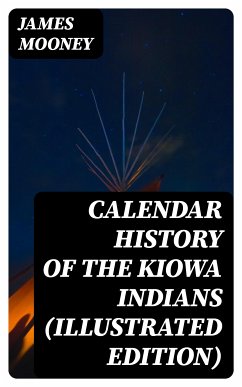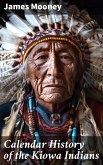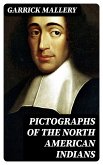In "Calendar History of the Kiowa Indians (Illustrated Edition)," James Mooney presents a meticulous chronicle of the Kiowa nation, blending ethnographic observation with scholarly rigor. This work is structured around the traditional Kiowa calendar, depicting significant events and cultural practices that shaped their collective identity. Mooney's literary style is marked by a rich descriptive quality and attentiveness to oral traditions, providing a valuable insight into the complexities of Kiowa life. The illustrations serve to enhance the narrative, offering a vivid visual representation of the culture that is both informative and engaging, placing the work in the broader context of ethnological studies in the late 19th century. James Mooney, an influential ethnographer and anthropologist, dedicated his career to the study of Native American cultures, motivated by a profound respect for their traditions. His extensive fieldwork among the Kiowa and other tribes allowed him to gather firsthand accounts and artifacts, fostering a deep understanding of their cultural heritage. Mooney's commitment to accurately documenting Indigenous histories played a crucial role in a time when such narratives were often marginalized. This illustrated edition is highly recommended for readers interested in Native American studies, anthropology, and cultural history. It serves as both an academic resource and a testament to the resilience of the Kiowa people, inviting readers to explore the intersections of history and identity through Mooney's authoritative lens.
Dieser Download kann aus rechtlichen Gründen nur mit Rechnungsadresse in A, B, BG, CY, CZ, D, DK, EW, E, FIN, F, GR, H, IRL, I, LT, L, LR, M, NL, PL, P, R, S, SLO, SK ausgeliefert werden.









